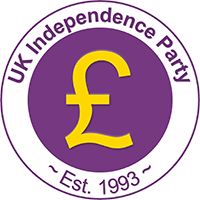Tax Cuts in a Recession
News & Social Media / Post
NEC Member John Poynton discuses whether cutting taxes helps in a recession.

Depends how it is funded. If that is by corresponding cuts in government expenditure then the net effect will be zero. However if it is by increasing borrowing then net demand in the economy is increased. That is what we have seen since the banking crisis and to combat the ever-increasing trade deficit with the EU over the past twenty years which has destroyed jobs. The result is record levels of both national and personal debt. Indeed they have over-done it which is one of several reasons why we now have a shortage of labour.
It is worth noting at this point that increasing demand in the economy to reduce unemployment, sometimes referred to as Keynesian economics after the way the famous economist John Maynard Keynes advocated ending the depression of the 1930's, is not at all the same thing as economic growth in our standard of living (GDP per capita). "Treasury Orthodoxy", now being blamed by the Tory leadership candidates for the lack of growth, is to balance the books over the course of the economic cycle, not year by year. That allows for borrowing during a recession to reduce unemployment provided it is paid back during a boom so that debt as a percentage of GDP remains constant or falling. Whilst it has nothing directly to do with growth it does lead to a disposition in favour of inflation to reduce the debt rather than balancing the books with tax increases or expenditure reductions. Inflation reduces real interest rates and hence savings and investment thereby undermining growth.
Internationally there is much evidence to suggest that smaller government produces higher rates of economic growth, the logic being that high levels of government expenditure uses up finance available for investment and therefore 'crowds out' the private sector which produces most of that growth because it is subject to competition. In the UK however the electorate demands expensive public services (eg the NHS) and a reliable welfare state making that difficult to achieve. That means separate policies are required to make public services much more efficient (the potential is huge, not least from introducing some proper accountable top management for each service) as well as finding other sources of finance, such as a Sovereign Wealth Fund or optional means-tested access to the private sector for services, if we are to reduce tax levels permanently. This is the essence of a centrist, radical economic strategy.
Over the past twenty years we have seen very little growth in our standard of living, This "productivity gap" is in fact a direct result of our increasing trade deficit with the EU, which presents British business with a contracting market and thereby little incentive to invest, and of open borders causing increasing levels of structural unemployment (the mismatch between people and jobs by skills and location. Square pegs will not go into round holes). Interestingly record levels of immigration have not provided any boost to growth. Only a quota system for legal immigration will solve that. The points-based system, which Tony Blair introduced in 2006, is too easily gerrymandered in favour of Big Business, thereby creating a self-perpetuating immigration spiral. Unless business is forced to train up British workers by a quota system the levels of structural unemployment will just get higher. A Tory government will never do this as their donors in business will not allow it.
The main condition for growth is investment by British business which carries more efficient means of production (productivity). For that you need both an expanding market and available additional labour resources. If you try to increase demand when there is a shortage of labour the result will be a combination of increased inflation, immigration and imports, the last giving all the investment benefit to foreign business. Open borders also imports wage compression which offsets the inflation and so masks the alarm bells at the Bank of England, which uses inflation as an indicator of an over-heated economy and the need to increase interest rates to control it. Hence the immigration spiral.
Many of us remember the Boom and Bust at the end of the 1980’s when Nigel Lawson’s 1987 budget cut income taxes substantially just when the economy was expanding as a result of Geoffrey Howe’s earlier cuts in credit controls. The result was that people used the extra money in their pockets to jack up their mortgages and chase up house prices.
The only way now to present British business with a sustainable expanding market is to reduce and eventually eliminate that trade deficit with the EU. This has grown steadily over the past 22 years to over 6% GDP while our trade with the rest of the world has moved from deficit to a steady 1% surplus. This divergence demonstrates clearly how the EU acts surreptitiously and maliciously to block our exports, (probably in revenge for us not joining the Euro), and the Tory deal has just allowed them to keep on doing that. Only a full No Deal Brexit will give us legal protection from such practices under the WTO’s ‘most favoured nation’ principle which applies where no bilateral trade agreement is in place. Furthermore it would enable us to use tariffs to offset the EU non-tariff barriers and take back control of our economic sovereignty as well as our legal sovereignty. Free trade on top of a deficit only increases that deficit and makes matters worse – simple mathematics!
Furthermore recovering £120 billion of trade deficit improves total GDP by that amount which in turn improves the tax base which produces about one-third of GDP as tax revenues. That means an extra £40 billion of tax revenues without increasing tax rates one iota.
It is interesting that neither of the Tory leadership candidates has drawn a distinction between the cost-push inflation that is now being imported on oil and gas wholesale prices, and over which no amount of increased interest rates will have any effect at all, and the monetary inflation resulting from government mismanagement and over-heating of the internal economy. We have to address both types separately with separate policies. Cutting direct fuel and energy taxes makes a lot of sense to offset the imported inflation and keep domestic fuel and energy prices stable, thereby cutting off a wage/price spiral at the knees. Means-testing energy bills will also reduce the cost of this and ensure the poorest get the most help, at least pro-tem until the danger has passed. This will probably prevent most of the forecast recession.
However in parallel with this the Bank of England must get its act together on interest rates to get some flexibility back into the labour market. I should also like to see them given a quite separate target to stabilize house prices using credit controls, as house price inflation often leads general inflation. The former will be difficult as there are a number of other factors which have glued up the labour market. Incredibly we now have a record 8% of the working-age population who are classified as economically inactive. Whilst much of this is the result of many years of open borders, it is also due to the botched implementation of Universal Credits, IR35, the traditional poverty trap as well as hangover from the Covid restrictions.
Perhaps the silver lining is that 10% inflation on top of a £2 trillion national debt releases an extra £200 billion for government expenditure if the aim is to keep the debt at a constant percentage of GDP in line with treasury orthodoxy. My suggestion would be to save half and spend half, and allocate half the spending to tax cuts and half to budget increases. That should be sufficient to knee-cap energy prices and provide some protection from inflation for public-sector workers and those in need as well as fund essential public services acceptably.
Recent National News











